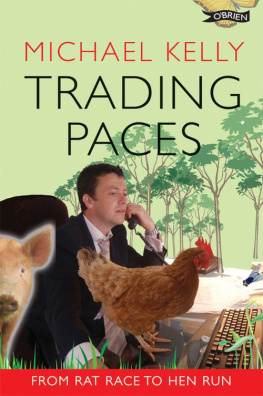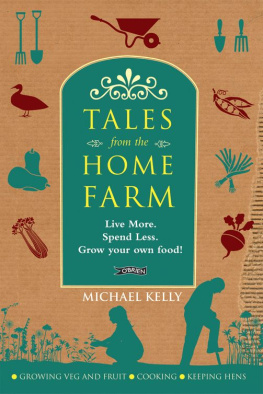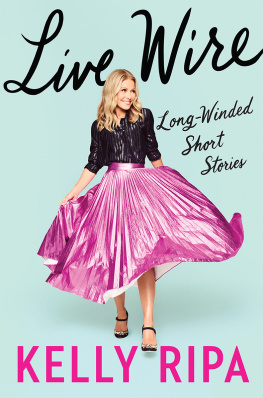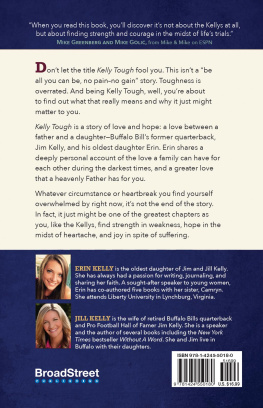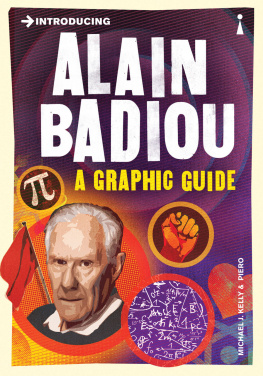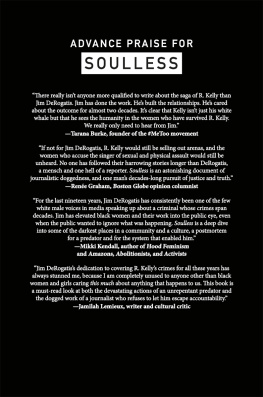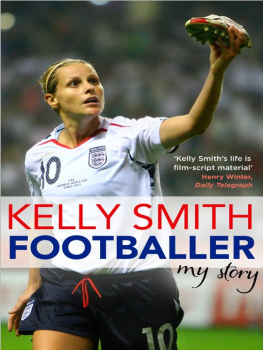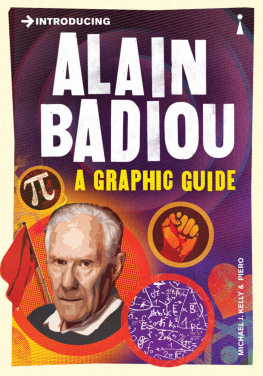Huge thanks to all of the following for their help and support over the past few years. My mum the reason we gravitated to Dunmore in the first place. My sisters Kim, Niamh, Ciara and Dara and their respective families. My extended family in Ballygalvert in particular the father-in-law for sage advice, the mother-in-law (hen supplier-in-chief and an inspiration when it comes to growing veg) and Stephen, for very practical assistance on gardening projects too numerous to mention.
I was given a great deal of inspiration, advice and encouragement by many friends and colleagues (past and present). If I try to list them I will invariably leave someone out, so thank you all. Our neighbours and friends here in Dunmore East, particularly Nathaniel and Ruth. To Denis Shannon and Betty Byrne for all the support and advice with the Tamworth Two. To a very talented photographer, Seamus ONeill just three words of advice: Its your calling. Patsey Murphy in The Irish Times and Sarah McDonnell in The Gloss showed a faith in my abilities without which I might never have left the IT industry for that I owe them a debt of gratitude. Also thanks to Kate Holmquist, Clare McCarthy, Carmel Daly, Liam McAuley, Conor Goodman, Barry OKeefe and Jane Powers in The Irish Times. Finally, to Michael OBrien, and all at The OBrien Press for taking a punt on Trading Paces, and Ide n Laoghaire, my editor, for guiding things along so expertly.
I have this thing I call the Wedding Test which goes like this: you are sitting at the reception of a wedding and making small talk with the person beside you while tucking in to your slab of beef (or salmon). You have discussed the bride and groom, the bridesmaids dresses, the mother-of-the-brides hat, how nice the service was, the table centrepiece, how ridiculously OTT weddings have become (They spent $40,000?!! My God, are you kidding me?!), how nervous the best man is about his speech, the institution of marriage, kids, traffic, the price of property. Having established a wine-fuelled comfortable rapport, your dinner companion feels comfortable enough with you to pop the question:
So, eh, what do you do?
Up to very recently Ive always dreaded that moment. Its a loaded question, a question that judges you. Measures you. A question that expects. What do you do? Four little words with a sting in the tail. Four little words, the answer to which will define you in the eyes of that person. If, for example, you say that youre a managing director or a doctor, this will immediately establish you as a Successful Person in your dinner-companions eyes. Yes, we are all just that shallow.
Now, how do you feel about the answer that comes out of your mouth? Are you happy with your response? Are your proud of what you do for a living? Or at least comfortable with it? Or do you mutter something inaudible through a mouthful of roast potato and hope someone will start clinking glasses to herald the start of the speeches?
For ten years I did the latter. Im a salesman, I would mumble and hope that they didnt hear me or that the person on the far side of them would ask a question and they would be distracted. Somewhere else at the table Mrs Kelly (my wife is an insanely private person and has therefore expressly forbidden me to use her first name, Eilish, anywhere in this book) would be saying, Im an accountant to her dinner companion and watching their eyes glaze over.
More often than not I would be too embarrassed to say, Im a salesman, and would say instead, I work for an IT company. Then they would say, Oh very good. Are you a programmer? And I would say, Eh, no, Im in sales. I tried to avoid the word salesman as much as I could. I cant really explain why I was so embarrassed by that word and I was more embarrassed by the word than by the profession itself. The job itself I could just about handle. But the word salesman I hated that word. (Incidentally, Im not alone you will never find a salesperson with the word salesperson or salesman on their business card. It will say account manager, sales executive, new business development manager, sales account executive, sales development manager. Pretty much anything but salesperson).
To many people the word salesman conjures up an image of someone slightly shifty, perhaps even a bit false or smarmy. It always seems to suggest that something unpleasant is about to happen. If you ask someone what a salesperson will be like socially, they will say that they might be fun and there certainly wouldnt be too many lulls in the conversation (sales people do like to talk, after all) but wont they always be looking for an angle? Can we trust them, really? Weve become incredibly tired and cynical about sales, advertising, marketing and PR and rightly so, in my view. We always tend to think that people in those professions are trying to con us into buying products we dont need and, worse, they have Jedi mind-tricks up their sleeves that make us powerless to resist their charms.
Back at the dinner table, if the conversation developed beyond these initial forays, and it rarely did, I would find myself getting all defensive about my job, quite uninvited. I would say things like, Well, sure, its only a job or It pays the bills.But, of course, a job is never only a job and were deluding ourselves when we say this. Its far more than that. In the average working life of forty-five years, we will spend 10,800 days at work. Think about that: 10,800 days. Sounds a lot, doesnt it? Our job is something we will be doing until were sixty-five so wed better bloody well like it.
And I was starting to realise all too slowly that I bloody well didnt.
Ive never understood why as a society we have all bought into the notion of retirement being the ultimate goal of a working life. Its held up as this utopian destination that well reach one day in the distant future when well be able to kick back and enjoy life. In the meantime we are willing to put up with all manner of misery in the workplace. My jobs shit, but never mind when I get to sixty-five, then Ill live. My father died when he was fifty-seven and I think that has always made me circumspect about the chances of even reaching retirement age. Imagine working away, thinking, Ah, at least in eight years time Ill be able to retire, then Ill live, goddammit! and then, kablamo, your time is up. Youd be pretty miffed, wouldnt you?
I remember sitting in a meeting with a pensions adviser when I was about twenty-five and he told me I had to start putting IR400 a month into my pension fund I had to stop myself from laughing in his face. The notion that I would deliberately deprive myself of such a large chunk of my earnings and let some bank hold onto it for the next forty years just seemed absurd to me, particularly given that I might not be around to get it back.
In your twenties you dont tend to waste much time thinking longterm. In fact, if you think at all, its probably about sex or beer, and how to get your hands on lots and lots of sex and beer. You tend to work to live as opposed to live to work a tired old clich, but theres a lot of truth in it. You work to get money to buy beer which will hopefully lead you eventually to more sex. Its a simple formula. Your twenties was a decade for pubs, clubs, parties, sexual exploration and falling down drunk. Your thirties is a decade for getting real.
When I turned thirty I started to think long and hard about where I was going with my working life and whether I wanted to spend any more time as a salesperson. I remember reading an obituary in a newspaper one day and wondering to myself: when I die, will there be an obituary in the paper? I know that sounds painfully vain and dont get me wrong, I know that (a) there are loftier measures of our worth as human beings then whether we have done something newsworthy and (b) there are also other things in life that are far more important than our careers the type of person we were, the way we treated others and so on. But you get my point. If you can wangle an obituary it probably means you have done something of note in your life. Would anyone want to write an obituary about a salesman?

